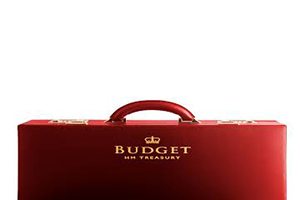Chancellor George Osborne’s Budget 2015 offered little in financial surprises for expats as the state of government finances left him little room for any pre-General Election tax giveaways.
Budget 2015 was Osborne’s last chance to set any agenda prior to the election on May 7, but he failed to deliver any major surprises.
Besides some tampering with tax allowances and some extra help for savers, the only major issue for expats was confirmation of how new capital gains tax rules will apply to them when selling homes in the UK after April 6, 2015.
As expected, capital gains tax will be due within 30 days of a home disposal – but only on any gain in value from April 6, 2015.
Any gain already banked in the property value will remain exempt from CGT.
The Chancellor’s key points
Osborne’s other Budget announcements include:
- Hiking personal income tax allowances to £10,800 from April 6, 2015 and then to £11,000 on April 6, 2015.
The higher rate tax threshold also rises over the next three tax years. The threshold is the income level at which the 40% tax rate kicks in.
From April 6, 2015, the threshold is up £520 from £41,865 to £42,385. On April 6, 2016, the limit increases again to £42,700 and to £43,300 a year later.
- A new personal savings allowance starting on April 6, 2016, that lets basic rate taxpayers save £1,000 before paying income tax on any interest earned. The allowance is £500 for higher rate taxpayers.
The Chancellor expects this measure to remove 17 million savers from the tax net.
- A shift in the way tax is collected by introducing digital tax accounts for individuals and small businesses.
HM Revenue & Customs (HMRC) will open around 50 million digital accounts over the next five years. The account will act as a dashboard displaying financial information collected by HMRC from banks, pension providers and employers.
The idea is to let taxpayers and entrepreneurs have a real time view of their tax liabilities. The government also wants to encourage taxpayers to pay what they owe in instalments through the year rather than waiting until the annual January 31 deadline.
- Flexible ISAs will let savers pay in and cash out savings during a tax year without affect ting their tax-free saving limit, providing the withdrawals and repayments are in the same tax year.
